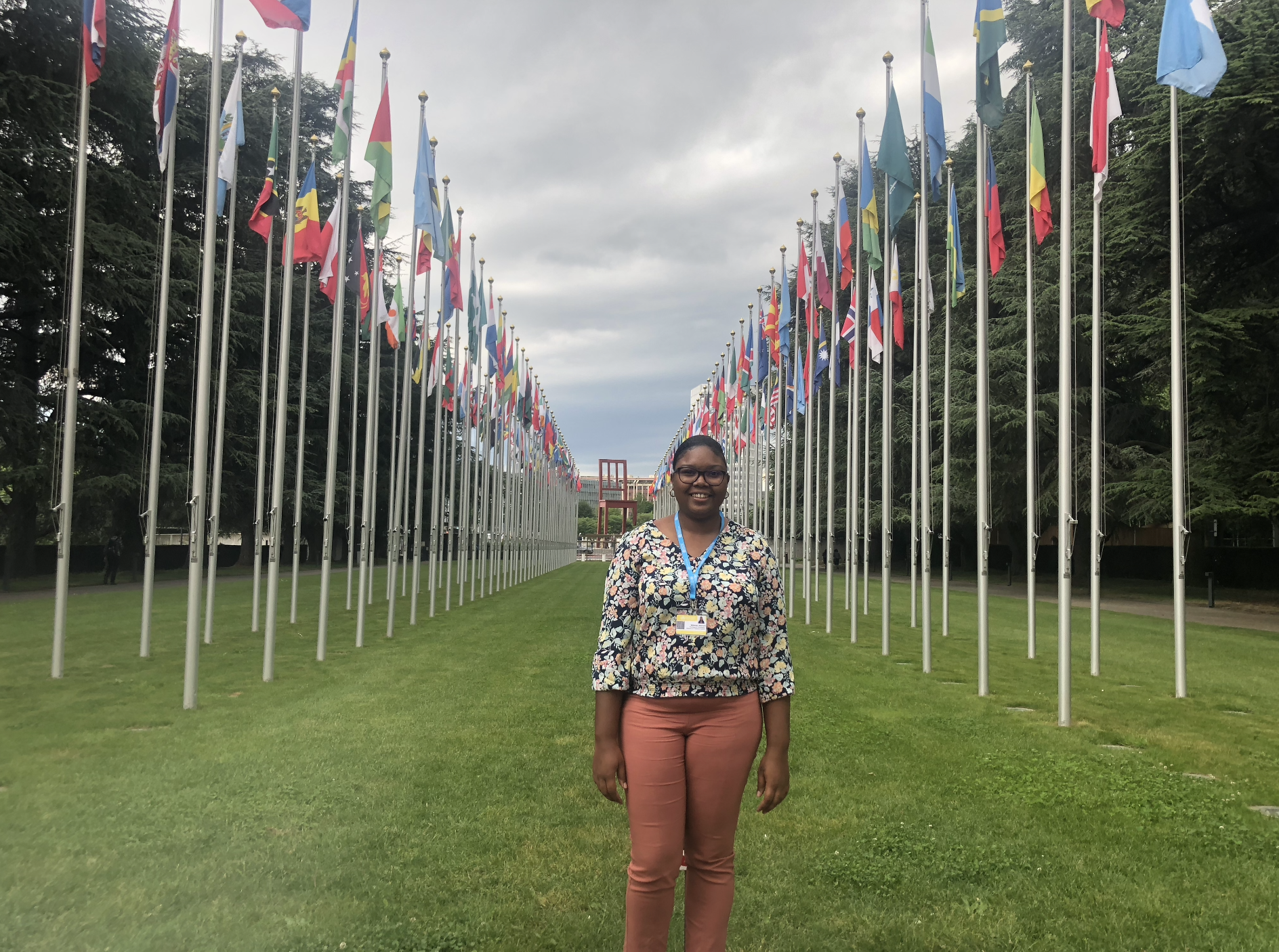Q&A with Stephanie Whiteman, Healthy Food Policy Fellow
Stephanie Whiteman is a Healthy Food Policy Fellow at Vital Strategies, one of nine fellows pursuing individual fields of study to bridge the research gaps and contribute to healthier food environments in the Food Policy Program’s focus countries. A native of Trinidad and Tobago, Stephanie has lived in Barbados for the past six years, where she is currently pursuing a Ph.D. in Epidemiology at the University of West Indies. Several of the research projects she is working toward focus on creating healthier food environment through policy. In May, Stephanie attended the 75th World Health Assembly in Geneva, Switzerland as a youth advocate for the NCD Child Young Leaders Program. She shared some takeaways from that event, and what it means for her work moving forward.
From your perspective, what was the most significant outcome of the 75th World Health Assembly?
This year’s World Health Assembly was particularly monumental in that it was the first time noncommunicable diseases occupied such a large portion of the agenda. I was pleased to see that this was on everyone’s radar. One of the main outcomes of the assembly was the approval of the “omnibus” resolution to address noncommunicable diseases. These global commitments to the NCD agenda left me feeling inspired and motivated to continue my work promoting healthy food policies.
This was the first time you were a participant at the World Health Assembly. Can you share some of your impressions?
All in all, WHA75 was an eye-opening experience, a chance to observe the decision-making process of the World Health Organization. Being a Vital Strategies Healthy Food Policy Fellow and an NCD Child Young Leader prepared me to critically assess the policies being discussed (and those not discussed) at this global forum. As part of the fellowship, we often discuss policy options countries can employ and it was great to see these same discussion points brought up at the WHA. I made new connections and friendships with like-minded NCD advocates. I’m hopeful we will continue to strategically encourage governments and decision-makers to follow the WHO best buys—low-cost, high-impact public health interventions—as well as other polices to allow for the prevention, early detection and management of noncommunicable diseases.
But I did note there was particularly low representation among youth and people from Small Island Developing States—two groups I proudly represent. Many of the discussions occurring at the WHA centered on preparing cities and urban centers for emergencies, including disease outbreaks, climate-related events and natural disasters. Yet I felt as though the populations most likely to be affected—particularly people from Small Island Developing States—were not present. I would like to see greater representation in future World Health Assemblies and other high-level meetings.
As a youth advocate, how did the limited representation of people your age affect your participation?
Since youth were so underrepresented, those of us who were there felt the need to speak up during Q&A sessions. At one side event co-hosted by Vital Strategies and partners on building momentum to reduce unhealthy diets and prevent NCDs, one of the countries highlighted was Barbados. Barbados first implemented a 10% sugar sweetened beverage tax in 2015, and then in April 2022, the government increased the tax rate to 20%. Yet, even though the country has a high literacy rate, the government made no effort to engage the public about the health benefits of the tax. As a result, among the average Barbadian, it wasn’t seen as a good thing.
I felt as though this was a problem of policy implementation that needed to be addressed, so I worked up the nerve to ask the minister of health and wellness of Barbados, whose ministry was one of the event co-hosts. He seemed surprised by my question and gave a generic answer stating that they are planning a public engagement initiative to be launched “soon.” Yet here in Barbados, I have seen no evidence of an engagement campaign to secure buy-in from the public.
Have you observed any trickle-down effects on the ground in Barbados, following the World Health Assembly’s emphasis on noncommunicable diseases?
My work primarily looks at evaluating food environments and informing public policy in Barbados to create food environments that help encourage healthy choices. The WHA’s omnibus resolution about noncommunicable diseases emphasizes the need for my work, giving it more leverage and importance.
More concretely, in Barbados the government chose the July-August school vacation to implement a new school nutrition policy, with healthier foods for school-age children available through the summer. We’ve been trying to get this school policy running for years, and it’s finally being implemented. I think this is a direct outcome of the World Health Assembly.
For me, the biggest takeaway from the World Health Assembly was the understanding that, no matter the policy, the approach needs to be holistic, and take everyone’s views into account, from government and educational institutions to youth and vulnerable groups. This approach will not only improve the actual policies, but also speed them along, and overcome some of the hurdles to implementation. We need a whole-of-society approach.
Get Our Latest Public Health News
Join our email list and be the first to know about our public health news, publications and interviews with experts.
